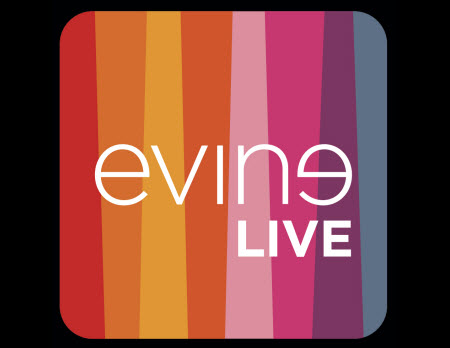Evine Live Is Still Ripening
The smarter way to stay on top of the multichannel video marketplace. Sign up below.
You are now subscribed
Your newsletter sign-up was successful

RELATED:Evine Unveils Shareholders Rights Plan
About a year after a proxy fight gave it new owners and a new board of directors, management and direction, Evine Live, the former ShopHQ, is finding the path to success may take a little longer than it first expected.
Expectations were high when New York-based investment adviser The Clinton Group took control of the company in what was at times a contentious proxy fight. A new board of directors — including former Fremantle Media North America CEO and reality show pioneer Thom Beers — and former HSN CEO Mark Bozek were brought in to transform the company from a hawker of watches and jewelry into a retailer with a heavy concentration on proprietary product lines.
The idea was that by intertwining aspects of reality television and TV talent shows, Evine could create a “seamless entertainment transactional experience.”
INITIAL ENTHUSIASM
Early results were good: in the fourth quarter of 2014, Evine grew revenue 4% to $201 million and adjusted EBITDA increased 44% to $7 million. Evine stumbled in Q1, though. Total revenue of $158 million in the quarter fell short of analyst estimates and was down about 1% from the prior year. Cash flow was $1.6 million in the period, down 71% from $5.5 million in the prior year. Sales in the next two quarters would be flat compared to the prior year, Evine also said, with growth not expected until the fourth quarter.
As a result, Evine’s stock has plunged by more than 50% since it reported those results in May and last week raised some eyebrows with the initiation of a shareholders’ rights plan — also known as a “poison pill” — that would make it harder for an outside party to attempt a hostile takeover of the company.
The smarter way to stay on top of the multichannel video marketplace. Sign up below.
Brean Capital senior vice president and senior analyst equity research Tom Forte said he believes the poison pill is merely a measure to preserve Evine’s $486 million in net operating losses, which are used to offset future tax payments.
That said, Forte said there are two story lines to Evine — the actual company and its stock.
“From the standpoint of the company, you have a CEO, Mark Bozek, who has taken an aggressive approach to transforming the business,” Forte said. “Instead of maintaining the status quo of the business he took over, he has boldly made changes that if successful will position the company for sustained sales and profitability growth.”
Evine management was not immediately available and declined to comment for this article.
Some of those changes include the introduction of a new line of cookware and accessories by celebrity chef Todd English and a surprisingly successful line of seafood and cookware modeled after The Deadliest Catch on Discovery Channel.
The other Evine, its stock, indicates that the transition from Shop HQ to Evine has been “choppy,” Forte said. That’s mainly because the transformation of the company from a watch and jewelry seller to a retailer with its own proprietary brands has taken longer than expected.
“It takes time to build new brands, even the ones I believe will be successful,” Forte said.
Forte is obviously bullish on the stock and his company, Brean Capital, makes a market in Evine securities, but he also has a point.
Even QVC and HSN, the two home-shopping leaders, didn’t make the switch to proprietary brands overnight. And Evine has had some early successes: Mark Cuban’s American Dream, a show starring the Dallas Mavericks owner, investor and Shark Tank panelist, along with a lineup of nine entrepreneurs hawking their own products and inventions, was one of its most-watched programs ever. The addition of English and the success of the Deadliest Catch line, all expected to continue their relationship with Evine, looks encouraging.
But even Forte admits that the Q1 slowdown has created some skepticism in management’s ability to do the job.
PRODUCT MIX QUESTION
While Evine management has said the rebound should begin in the fourth quarter, Forte said the bigger question is whether or not the company can transform its product mix to more than 70% proprietary offerings.
Evine has said proprietary products make up about 33.8% of sales, but Forte believe the figure is more like 20% to 25%.
“When that day comes, I suspect that they will have solid financial performance,” Forte said.
